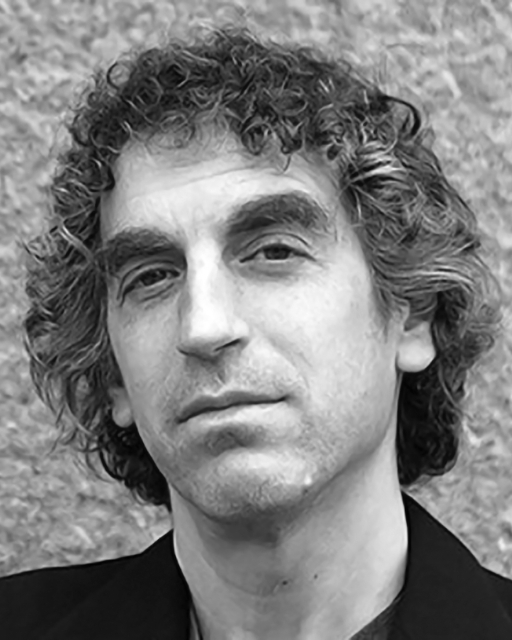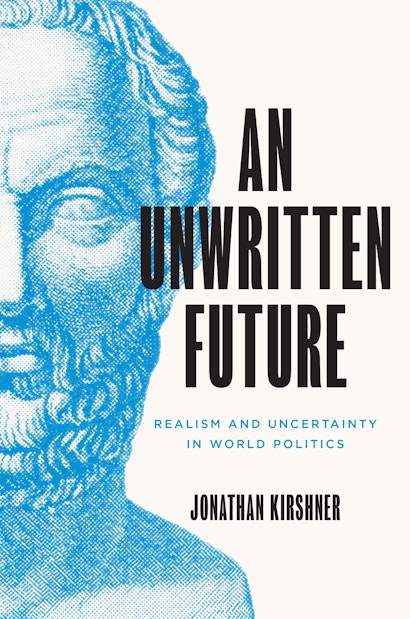An Unwritten Future offers a fresh reassessment of classical realism, an enduring approach to understanding crucial events in the international political arena. Jonathan Kirshner identifies the fundamental flaws of classical realism’s would-be successors and shows how this older, more nuanced and sophisticated method for studying world politics better explains the formative events of the past. Kirshner also reveals how this approach is ideally equipped to comprehend the vital questions of the present—such as the implications of China’s rise, the ways that social and economic change alter the balance of power and the nature of international conflict, and the consequences of the end of the US-led postwar order for the future of world politics.
Why did you write this book?
JK: I wanted to reclaim realism, an invaluable approach to describing, explaining and understanding world politics. An Unwritten Future pushes back against two influential intellectual developments, each of which, it is now clear, were giant steps in the wrong direction. One is the overwhelming predominance within the realist tradition of structural realism. The other, seen more generally in the study of international relations, is the widespread embrace of an extremely narrow (and misguided) definition of rationality, with regard to how leaders and countries behave.
Structural realism is so influential that even professional scholars routinely assume that structural realism is realism. But it is simply one approach to realism that, on its own, can’t tell us much of anything in practice. An Unwritten Future articulates, explores and applies a different approach, classical realism, which can do better. Regarding rationality, while it is certainly reasonable to model actors as “rational”—indeed all forms of realism generally assume that actors are essentially rational—many of the most purportedly “sophisticated” theories of IR now embrace what can only be described as “hyper-rationality.” This extremely narrow definition of rationality is not just implausible, but it also inevitably leads to basic errors of analysis.
How is classical realism different?
JK: All flavors of realism share some basic assumptions about the formative influence of anarchy in world politics, the need for countries to be alert to potential threats from others, and the routine rise of intractable conflicts of interest, all of which require attentiveness to the balance of power. Nevertheless, classical realism parts company with structural realism with its emphasis on the role of history and purpose in explaining how countries will behave and with the notion that politics matters—that is, that both domestic politics and international diplomacy formatively influence what will happen next.
These variables are forbidden by structural realism, which cannot, for example, see any difference between Weimar Germany and Nazi Germany or imagine that the horrifying trauma of the First World War had any influence on the foreign policy choices of the 1930s. Jumping to the present, structural realism would consider the American experience of this century—losing two long wars, the Great Recession, the rise of nativist nationalism in its domestic politics—to be irrelevant (and impermissible) in explaining U.S. foreign policy choices in the coming years.
There seem to be plenty of realisms already, like offensive realism. Do we really need another realism?
JK: Well, we certainly don’t need another realism—we just need to get back to the one that we had! Until a few decades ago, we just called it realism, and it worked really well. Thinkers like Hans Morgenthau, Raymond Aron, and George F. Kennan didn’t think of themselves as “classical” realists any more than The Beatles, The Rolling Stones and Bob Dylan thought they were playing “classic” rock. As for offensive realism, oh my. A sub-variant of structural realism, it just doesn’t hold up in the real world—even by the logic of its own bedrock assumptions. Worse, the theory is explicitly deterministic: it insists that actors will inevitably behave precisely as the theory predicts.
Offensive realism imagines itself as social Newtonian physics. But while the apple has no say in how and when it will fall from the tree, social relations involve motivations, calculations, interactions, and irreducible uncertainty. And countries, especially powerful countries, make choices about which foreign policies to select from a variety of plausible options. Offensive realism is defined and disfigured by its determinism. What will be, it claims, will inevitably be. Whereas for classical realism, which is characterized by a tempered analytical discipline and aspires to generalizable claims … the future is unwritten.
Realism seems to have a reputation for excusing terrible things or ignoring the suffering of others. Is realism amoral?
JK: No, but I can understand why you would have that impression. Realists of all stripes tend to view the world as a profoundly amoral place, where horrifying acts of barbarism are committed by evildoers who are unconstrained by norms of right and wrong or even simple human decency. And it’s fair to say that realists also commonly qualify their policy prescriptions with a sensitivity to the fact that it is often hard to distinguish the “good guys” from the “bad guys” and that there are limits to one’s own power and to what that power can accomplish.
Nevertheless, there is a big difference between observing an amoral world and using that as an excuse to behave immorally on the world stage. We can call this the “the Kissinger problem,” and it is fair to say that many self-professed realists fail to attend this crucial distinction. Actually, Chapter Four of the book is called “The Limits of Classical Realism,” and it engages this issue and a number of vexing and perennial challenges. These critiques are not an afterthought—relentless self-awareness of the problematic aspects of realism are a feature, not a bug, of the realist enterprise.
If I’m not a realist—and I don’t want to become one—how would all this concern me?
JK: I don’t want you to be a realist, either! The last thing we want is for everyone to share the same analytical disposition. Intellectual monocultures invite disaster. In economics, for example, everybody shared pretty much the same model of how the world worked, and so they all shared the same blind spots as well—which was why the profession didn’t see the global financial crisis coming. So we certainly shouldn’t all be realists.
But all of us interested in international relations, either in theory and practice, should be well versed in its intellectual traditions—how they work, what they contribute, and what they will likely fail to understand. Admittedly, I do want my fellow realists to give classical realism a fresh look, and I want everybody to be alert to the follies of hyper-rationalism. Having said that, articulating realism—looking under the hood, kicking the tires, even taking it for a spin— is not an evangelical enterprise but a clarifying one. Realism is often contrasted with liberalism as an approach to international relations, but trying to prove one or the other right or wrong will come up empty. They are contrasting analytical dispositions, not competing theories. And no matter which side you are on (sides is a strong word—I like to think of each as the others’ loyal opposition), understanding contrasting perspectives will improve everybody’s ability to skillfully engage in their own understandings of world politics.
Jonathan Kirshner is professor of political science and international studies at Boston College, and the Stephen and Barbara Friedman Professor of International Political Economy Emeritus at Cornell University. His many books include Currency and Coercion (Princeton) and Hollywood’s Last Golden Age.

